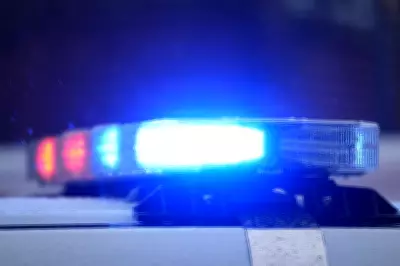
Freedom Convoy organizer Tamara Lich is taking her legal battle to the next level, formally appealing her recent convictions for mischief and counseling mischief. The controversial figure, who became the public face of the massive Ottawa protests that paralyzed the nation's capital in early 2022, continues to fight the legal consequences of her actions.
The Grounds for Appeal
Legal documents filed with the Ontario Court of Appeal reveal that Lich's legal team is challenging both the conviction and the subsequent sentence. The appeal argues that the trial judge made significant errors in interpreting the law and handling evidence throughout the proceedings.
Central to the appeal is the claim that the court improperly defined what constitutes "mischief" under Canadian law. The defense contends that the prosecution failed to prove essential elements of the offense beyond a reasonable doubt, particularly regarding the alleged counseling of mischief charges.
Background of the Case
The convictions stem from Lich's central role in organizing the Freedom Convoy protests that gridlocked downtown Ottawa for three weeks in February 2022. The massive demonstration, initially protesting COVID-19 vaccine mandates for cross-border truckers, evolved into a broader anti-government movement that captured international attention.
During the trial, prosecutors portrayed Lich as a key architect of the protests that saw hundreds of large trucks and thousands of protesters occupy streets around Parliament Hill. The demonstration resulted in widespread disruption to local businesses, residents, and government operations, ultimately prompting the federal government to invoke the Emergencies Act.
Legal Ramifications and Public Reaction
Lich's case has become a flashpoint in ongoing debates about protest rights versus public order in Canada. Supporters view her as a champion of freedom fighting against government overreach, while critics see her as responsible for an illegal occupation that caused significant harm to Ottawa residents.
The appeal process is expected to extend the legal proceedings for several more months, if not years, ensuring that the controversial events of early 2022 remain in the public consciousness. Legal experts suggest the case could potentially reach the Supreme Court of Canada, given its constitutional implications regarding protest rights and public safety.
What's Next in the Legal Process
The Ontario Court of Appeal will now review the filed documents and set a schedule for hearing the appeal. This typically involves written submissions from both sides followed by oral arguments before a panel of appeal court judges.
While the appeal process unfolds, Lich remains free under the conditions of her original bail. The case continues to draw significant public interest, reflecting the deep divisions in Canadian society that the Freedom Convoy protests exposed and amplified.





